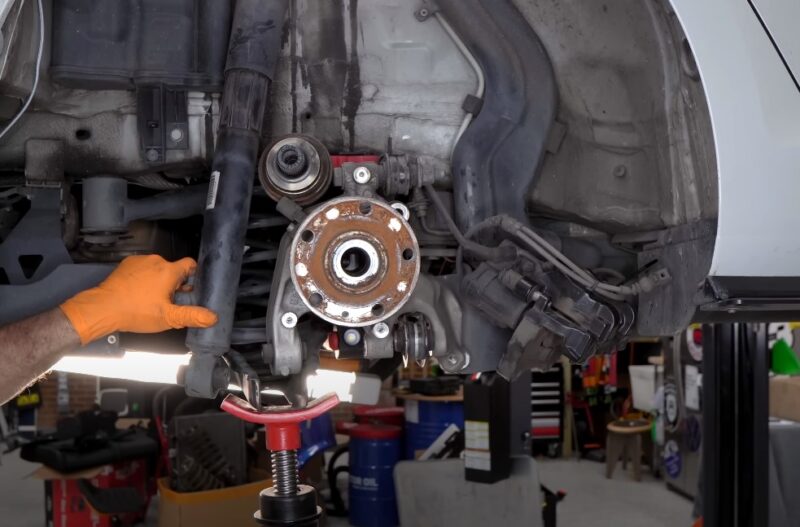Wheel bearings are essential components of a vehicle’s wheel assembly, enabling smooth and efficient wheel rotation with minimal friction. They are crucial for the stability and handling of your car.
Replacing wheel bearings is an essential part of vehicle maintenance, often overlooked until a significant issue arises. The cost of replacing wheel bearings can vary widely, depending on several factors.
Actual Replacement Price
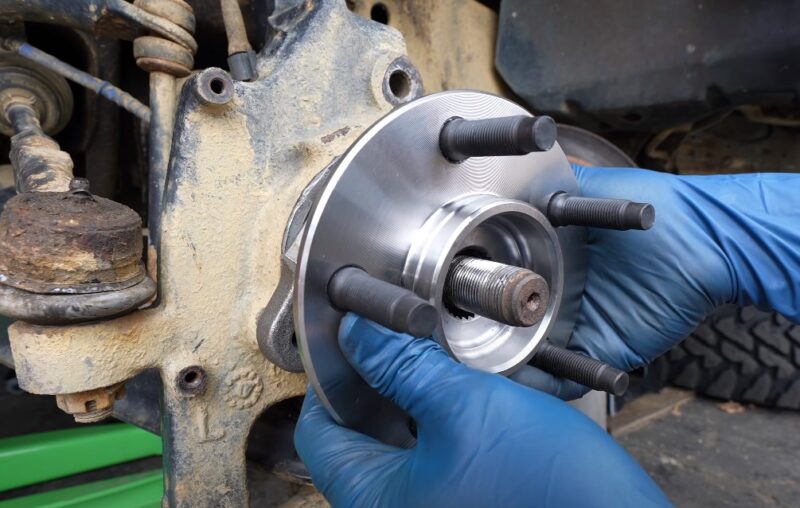
Replacing wheel bearings is an essential part of vehicle maintenance, often overlooked until a significant issue arises. The cost of replacing wheel bearings can vary widely, depending on several factors.
Generally, for most vehicles, you can expect to pay between $150 to $800 per wheel bearing. This range includes both the parts and labor costs.
High-end or luxury vehicles might see higher costs due to the specialized nature of their components.
Factors Influencing the Price
- Type of Vehicle: The make and model of your vehicle play a crucial role in determining the cost. Luxury and performance vehicles typically require more expensive parts and specialized labor.
- Single or Double Bearings: Some cars have single-wheel bearings, while others use a hub assembly that includes double bearings. Double bearings or hub assemblies are typically more expensive.
- Labor Costs: Labor costs can vary significantly based on your location and the garage’s hourly rate. Dealerships might charge more than independent garages.
- Quality of Parts: The quality of replacement bearings also influences the price. OEM (Original Equipment Manufacturer) parts are usually more expensive than aftermarket options, but they often offer better quality and warranty.
Immediate Cost vs. Long-Term Investment
While the initial outlay for high-quality bearings might seem steep, investing in good-quality parts can save you money in the long run. Cheaper bearings may fail sooner, leading to more frequent replacements and potentially more extensive damage to your vehicle.
Symptoms and Function
Wheel bearings are critical components of your vehicle’s wheel assembly, enabling smooth and efficient wheel rotation with minimal friction. They are crucial for the stability and handling of your car.
Symptoms of Problem
Recognizing the signs of failing wheel bearings is crucial for timely replacement. Some common symptoms include:
- Grinding or Squealing Noise: A noticeable grinding or squealing noise from the wheels is often the first sign of bearing wear.
- Uneven Tire Wear: Bad bearings can cause uneven tire wear, often mistaken for alignment issues.
- Loose Wheels: In severe cases, the wheel might feel loose or wobbly.
- ABS Failure: For vehicles with ABS (Anti-lock Braking System), a faulty bearing can trigger ABS failure warnings.
Identifying these issues early can prevent more significant and costly damages to your vehicle’s wheel assembly and suspension system.
Function of Wheel Bearings
- Reducing Friction: Wheel bearings are designed to reduce friction as the wheels spin. This not only makes your ride smoother but also more efficient.
- Vehicle Stability: Properly functioning bearings are essential for the stability of the vehicle. They help maintain contact with the road, especially during turns and when driving at high speeds.
- Load Bearing: They also bear the weight of the vehicle, both static and dynamic loads, as you drive.
Selecting the Right Parts
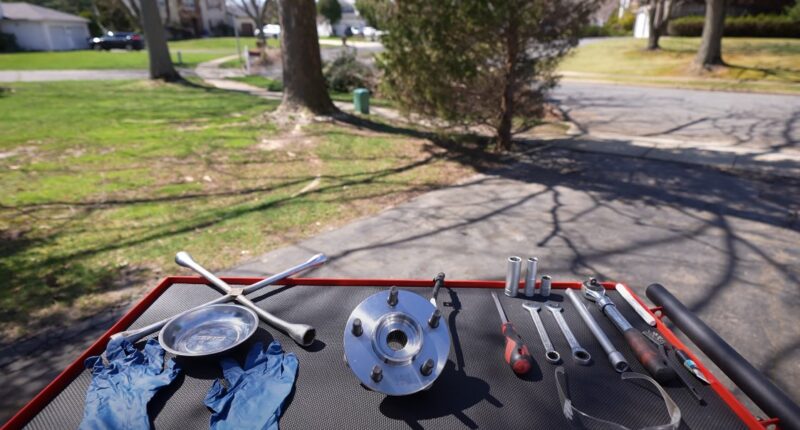
When it comes to selecting wheel bearings, there are several options to consider. The choice largely depends on your vehicle type and your budget.
OEM vs. Aftermarket
- OEM Bearings: Original Equipment Manufacturer bearings are made specifically for your vehicle model. They are usually more expensive but offer a guarantee of quality and compatibility.
- Aftermarket Bearings: These bearings are produced by third-party manufacturers and can be significantly cheaper. However, their quality can vary, and they might not always offer the perfect fit for your vehicle.
Cost-Benefit Analysis
When selecting bearings, consider both the immediate cost and the potential long-term benefits. Cheaper bearings might save you money upfront but could lead to more frequent replacements and potential damage to your vehicle.
Conversely, investing in high-quality bearings can extend the lifespan of your wheel assembly and improve your vehicle’s overall performance.
Call to Action
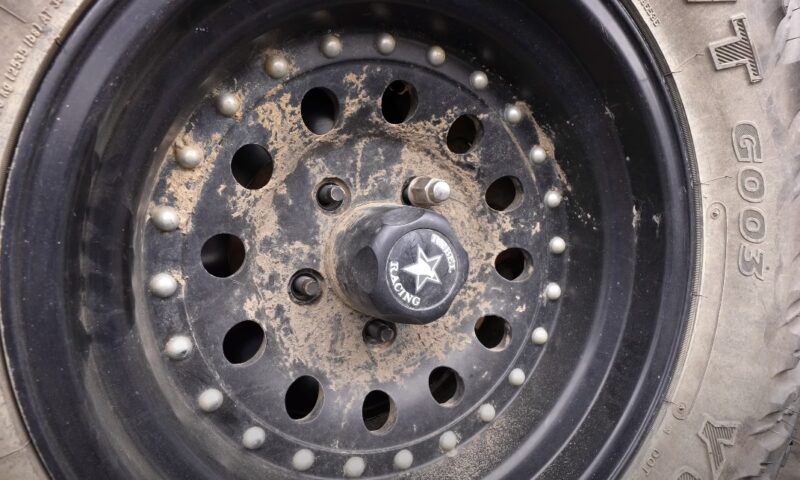
Now that you’re equipped with the knowledge about the importance of wheel bearings, their costs, and the factors influencing these costs, it’s time to take action. Don’t wait for the signs of wear and tear to show up.
Being proactive in maintaining your vehicle’s wheel bearings is key to ensuring its longevity and performance.
Schedule Your Inspection Today
If you’re uncertain about the condition of your wheel bearings or it’s been a while since they were last checked, we encourage you to schedule an inspection with a trusted mechanic. This simple step can save you from future costly repairs and keep your vehicle running smoothly.
Invest in Quality for Long-Term Benefits
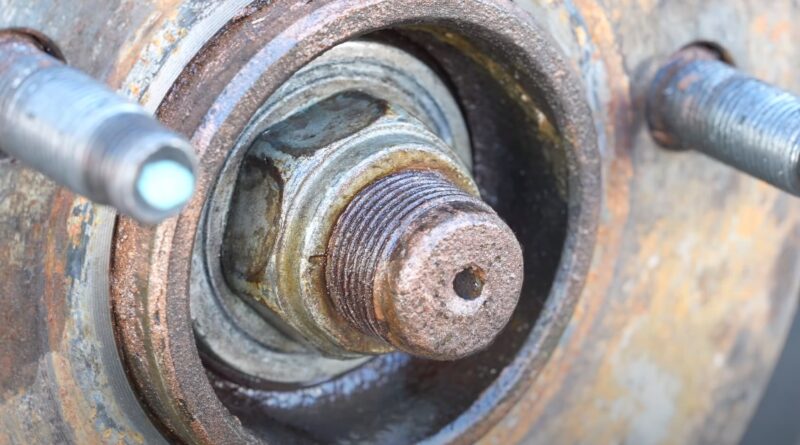
Remember, investing in high-quality wheel bearings is not just a cost; it’s an investment in your vehicle’s future. Opt for OEM or high-grade aftermarket bearings to enhance your car’s performance and safety.
Stay Informed and Connected
We’re here to help you through every step of your vehicle maintenance journey. For more tips, guides, and expert advice, don’t forget to subscribe to our newsletter and follow us on social media.
You’ll receive the latest updates, special offers, and exclusive insights directly to your inbox.
Share Your Experiences
Your feedback and experiences are invaluable to us and our community. If you’ve recently had your wheel bearings replaced, share your story with us.
Your insights could help others make informed decisions about their vehicle maintenance needs. Taking care of your vehicle’s wheel bearings is more than just a maintenance task; it’s a commitment to safety and efficiency.
Make the right choice today for a smoother drive tomorrow. Let’s keep your vehicle at its best – together.
FAQ
How long do wheel bearings typically last?
Wheel bearings can last anywhere between 85,000 to 100,000 miles under normal driving conditions. However, their lifespan can be shorter if the vehicle is frequently driven on rough roads or under heavy loads.
Can I replace the wheel bearings myself?
Replacing wheel bearings can be a complex task requiring specific tools and skills. It’s generally recommended to have them replaced by a professional mechanic, especially for vehicles with integrated sensor systems.
Do wheel bearings affect fuel efficiency?
Yes, worn or damaged wheel bearings can create additional friction, leading to reduced fuel efficiency. Maintaining well-functioning bearings can help ensure optimal fuel consumption.
Are there different types of wheel bearings for different climates?
While there aren’t specific bearings for different climates, it’s important to use bearings suited to your vehicle’s specifications. Certain bearings might perform better in areas with high moisture or road salt usage.
How can I prevent wheel bearing failure?
Regular vehicle maintenance, including wheel alignment and balancing, can help prevent premature wheel bearing failure. Avoiding driving through deep water and reducing frequent heavy loads can also prolong their lifespan.
Is it safe to drive with a noisy wheel bearing?
Driving with a noisy wheel bearing is not recommended as it can indicate severe wear or damage. This can lead to wheel detachment or other serious issues, posing a significant safety risk. It’s best to have it inspected and replaced if necessary as soon as possible.
Final Words
Wheel bearings are key to smooth wheel rotation and vehicle stability. Their replacement is crucial for maintenance, with costs varying based on vehicle type, part quality, and labor. While higher-quality bearings may initially cost more, they tend to be more economical in the long run, avoiding frequent replacements and additional vehicle damage.
Regular maintenance and choosing the right bearings, like OEM or quality aftermarket ones, are essential for your vehicle’s longevity and safety. Stay updated on vehicle care by subscribing to relevant newsletters and following automotive social media.
Remember, maintaining your vehicle’s wheel bearings is vital for a safe and efficient driving experience.
